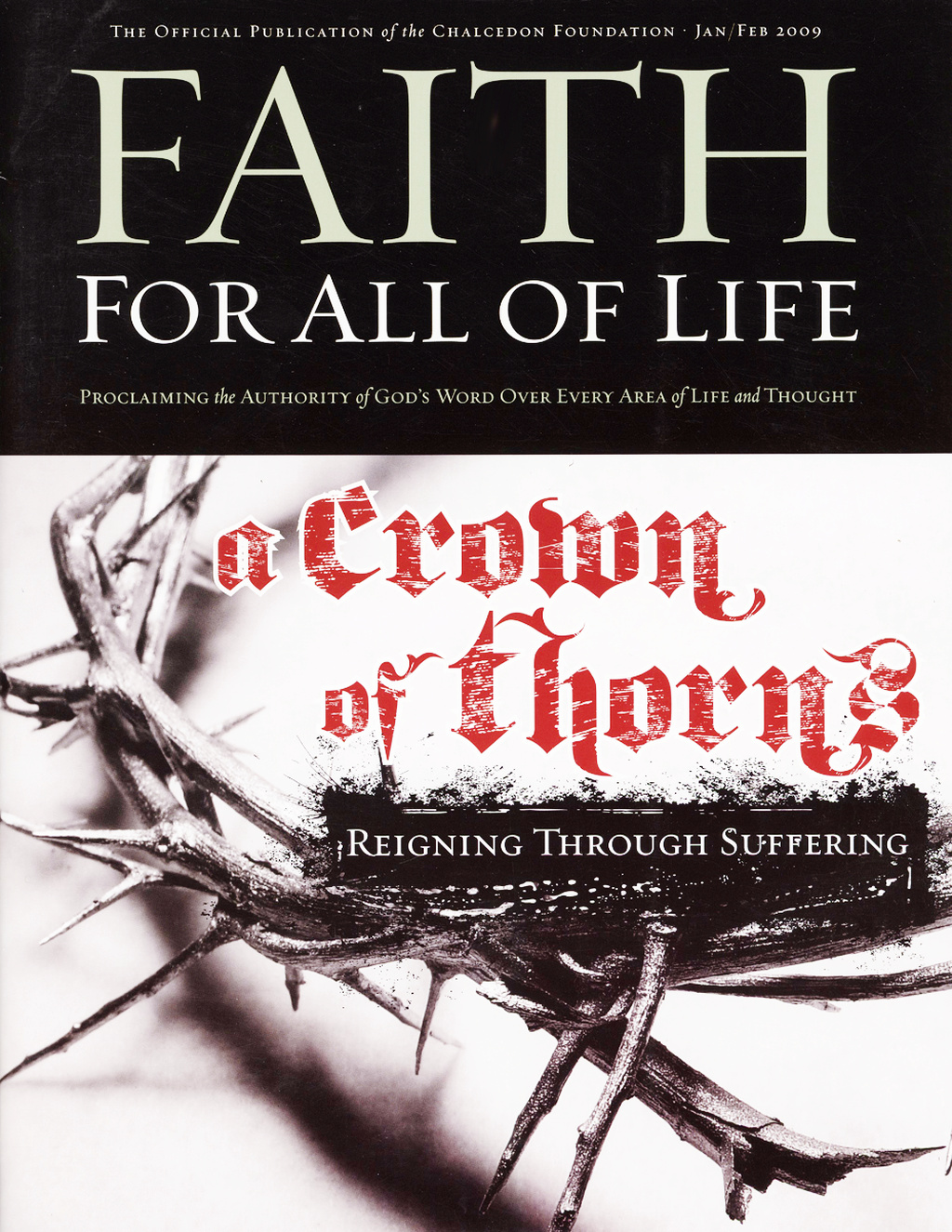
Magazine Issue
A Crown of Thorns: Reigning Through Suffering
One of the perpetual criticisms that dominionists hear is that we neglect the role of suffering in the life of the believer by our undue emphasis on the triumphant Christian.
January/February 2009 Articles:

The Beatitudes

- R. J. Rushdoony
The Christian and the Passing of Time

- Mark R. Rushdoony
A Crown of Thorns: Reigning Through Suffering
- Christopher J. Ortiz
Protection and Covering: A Look at God’s Provision for the Biblical Trustee Family

- Andrea G. Schwartz
Canadian Bloggers Targeted by “Human Rights” Censors

- Lee Duigon
Icondulism: Reaching Out and Touching God
- Greg Uttinger

None Dare Call It Phariseeism

- Martin G. Selbrede
Thou Shalt Have No Other Gods Before God
- Bret McAtee